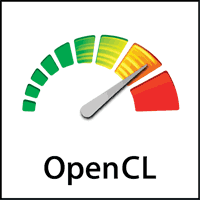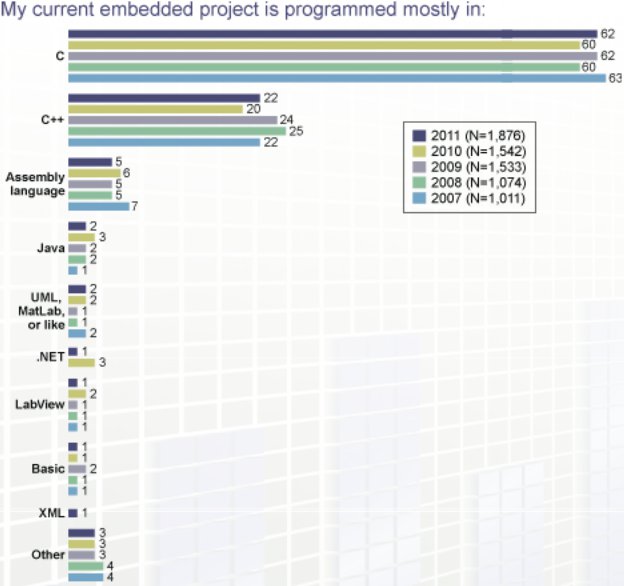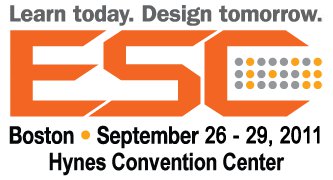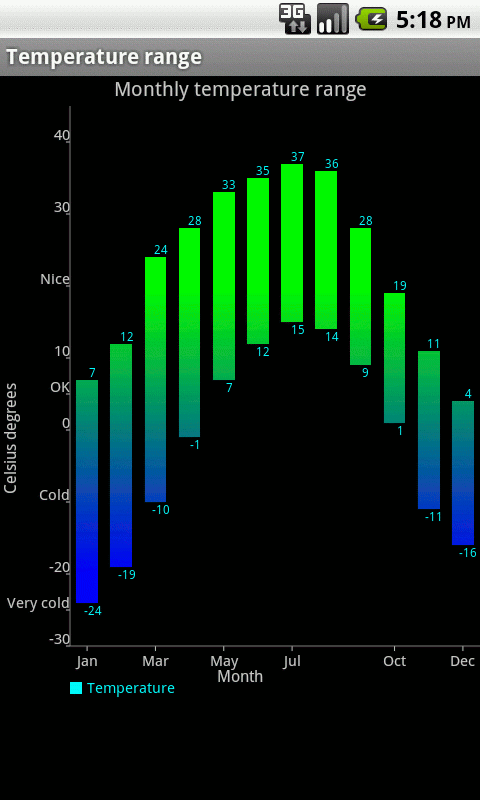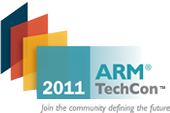OpenCL (Open Computing Language) is a multi-vendor open standard for general-purpose parallel programming of heterogeneous systems that include CPUs, GPUs and other processors. OpenCL provides a uniform programming environment for software developers to write efficient, portable code for highperformance compute servers, desktop computer systems and handheld devices. OpenCL standard is managed and defined by the Khronos Group. The latest version (OpenCL 1.1) was ratified by the Khronos Group on the 14th of June 2010 and adds significant functionality for enhanced parallel programming flexibility, functionality and performance including: Host-thread safety, enabling OpenCL commands to be enqueued from multiple host threads. Sub-buffer objects to distribute regions of a buffer across multiple OpenCL devices. User events to enable enqueued OpenCL commands to wait on external events. Event callbacks that can be used to enqueue new OpenCL commands based on event state changes in a non-blocking manner. 3-component vector data types. Global work-offset which […]
What Programming Language Should I Learn ?
“What programming language should I learn ?” is a question often asked by people new to software development. The answer is always “it depends”. But for embedded systems, it seems C language is a must as you can see in the chart below (Source: “The 2011 Embedded Market Study” by Embedded.com). For the 2011 survey, 1886 respondents from across the embedded industry answered that their embedded project was mostly programmed in C language (62%), followed by C++ (22%), assembler (5%) and Java (2%). The other languages were all under 1%. Jean-Luc Aufranc (CNXSoft)Jean-Luc started CNX Software in 2010 as a part-time endeavor, before quitting his job as a software engineering manager, and starting to write daily news, and reviews full time later in 2011. www.cnx-software.com
Embedded Systems Conference Boston 2011 Sessions Schedule
ESC Boston 2011 will take place on the 26-29 September 2011, four days of hands-on training, educational sessions and an interactive exhibit hall. There are 5 programs during the event: ESC Boston – Embedded software development tutorials for Android, Linux, microprocessors, QA, C programming, etc… DesignCon East – Hardware tutorials, e.g. SDRAM debugging, hardware encryption… DesignMED – Embedded systems development for embedded medical devices. Designing with LEDs! – LED hardware and drivers. DesignDays – Embedded systems sessions mainly presented by semiconductor companies and hands-on tutorials on specific platforms such as Beagleboard or TI MSP430 Chronos Wireless Watch. There are simply too many sessions (over 170) to list them all here. So I’ll selected a few among ESC Boston and DesignDays that look particularly interesting: Android Jump Start (Monday 26 – 8:00 – 17:00) by William Gatliff (Consultant, Freelance) and Karim Yaghmour (CEO, Opersys Inc.) . The features that make Android a great cell […]
200 C# Programming Video Tutorials
Last month, 200 Android Development Video Tutorials by TheNewBoston had been uploaded to ChangingTheUnknown Youtube channel. They have now prepared another playlist with 200 C# programming video tutorials for beginners in C#. To give you an idea of what you would learn, here are the titles of the first 10 tutorials: Introduction and Installing C# 2010 Changing Forms Properties Showing MessageBoxes Variables Changing Properties With Code If Statements More on If Statements If Statements pt 3 Switch Statements Mathematical Operators You can watch the first tutorial: “C# Beginners Tutorial – 1 – Introduction and Installing C# 2010” below. Jean-Luc Aufranc (CNXSoft)Jean-Luc started CNX Software in 2010 as a part-time endeavor, before quitting his job as a software engineering manager, and starting to write daily news, and reviews full time later in 2011. www.cnx-software.com
Top 5 Most Influential Programming Books Ever
The following question was raised on StackOverflow back in 2008: What is the single most influential book every programmer should read? If you could go back in time and tell yourself to read a specific book at the beginning of your career as a developer, which book would it be. The question has become one of the most popular question on Stackoverflow and the users have voted for their favorites books. Here are the results: Code Complete: A Practical Handbook of Software Construction Widely considered one of the best practical guides to programming, Steve McConnell’s original CODE COMPLETE has been helping developers write better software for more than a decade. Now this classic book has been fully updated and revised with leading-edge practices—and hundreds of new code samples—illustrating the art and science of software construction. Capturing the body of knowledge available from research, academia, and everyday commercial practice, McConnell synthesizes […]
Drawing Charts in Android with AChartEngine Library
AChartEngine is a charting library for Android applications that currently supports the following chart types: line chart area chart scatter chart time chart bar chart pie chart bubble chart doughnut chart range (high-low) bar chart dial chart / gauge combined (any combination of line, cubic line, scatter, bar, range bar, bubble) chart cubic line chart They announced that new chart types would be added in future release (Current version is 0.7.0). You can follow the updates for the library on Google Code or Facebook at http://www.facebook.com/achartengine. You can download the aChartEngine library on Google Code. You can also download some demo code such as TemperatureChart.java which display the following chart with just 100 lines of code including comments. Here’s the code (TemperatureChart.java) to display the Chart above:
|
1 2 3 4 5 6 7 8 9 10 11 12 13 14 15 16 17 18 19 20 21 22 23 24 25 26 27 28 29 30 31 32 33 34 35 36 37 38 39 40 41 42 43 44 45 46 47 48 49 50 51 52 53 54 55 56 57 58 59 60 61 62 63 64 65 66 67 68 69 70 71 72 73 74 75 76 77 78 79 80 81 82 83 84 85 86 87 88 89 90 91 92 93 94 95 96 97 98 99 100 101 102 |
** * Copyright (C) 2009, 2010 SC 4ViewSoft SRL * * Licensed under the Apache License, Version 2.0 (the "License"); * you may not use this file except in compliance with the License. * You may obtain a copy of the License at * * http://www.apache.org/licenses/LICENSE-2.0 * * Unless required by applicable law or agreed to in writing, software * distributed under the License is distributed on an "AS IS" BASIS, * WITHOUT WARRANTIES OR CONDITIONS OF ANY KIND, either express or implied. * See the License for the specific language governing permissions and * limitations under the License. */ package org.achartengine.chartdemo.demo.chart; import org.achartengine.ChartFactory; import org.achartengine.chart.BarChart.Type; import org.achartengine.model.RangeCategorySeries; import org.achartengine.model.XYMultipleSeriesDataset; import org.achartengine.renderer.SimpleSeriesRenderer; import org.achartengine.renderer.XYMultipleSeriesRenderer; import android.content.Context; import android.content.Intent; import android.graphics.Color; import android.graphics.Paint.Align; /** * Temperature demo range chart. */ public class TemperatureChart extends AbstractDemoChart { /** * Returns the chart name. * * @return the chart name */ public String getName() { return "Temperature range chart"; } /** * Returns the chart description. * * @return the chart description */ public String getDesc() { return "The monthly temperature (vertical range chart)"; } /** * Executes the chart demo. * * @param context the context * @return the built intent */ public Intent execute(Context context) { double[] minValues = new double[] { -24, -19, -10, -1, 7, 12, 15, 14, 9, 1, -11, -16 }; double[] maxValues = new double[] { 7, 12, 24, 28, 33, 35, 37, 36, 28, 19, 11, 4 }; XYMultipleSeriesDataset dataset = new XYMultipleSeriesDataset(); RangeCategorySeries series = new RangeCategorySeries("Temperature"); int length = minValues.length; for (int k = 0; k < length; k++) { series.add(minValues[k], maxValues[k]); } dataset.addSeries(series.toXYSeries()); int[] colors = new int[] { Color.CYAN }; XYMultipleSeriesRenderer renderer = buildBarRenderer(colors); setChartSettings(renderer, "Monthly temperature range", "Month", "Celsius degrees", 0.5, 12.5, -30, 45, Color.GRAY, Color.LTGRAY); renderer.setBarSpacing(0.5); renderer.setXLabels(0); renderer.setYLabels(10); renderer.addXTextLabel(1, "Jan"); renderer.addXTextLabel(3, "Mar"); renderer.addXTextLabel(5, "May"); renderer.addXTextLabel(7, "Jul"); renderer.addXTextLabel(10, "Oct"); renderer.addXTextLabel(12, "Dec"); renderer.addYTextLabel(-25, "Very cold"); renderer.addYTextLabel(-15, "Cold"); renderer.addYTextLabel(-5, "Quite cold"); renderer.addYTextLabel(5, "OK"); renderer.addYTextLabel(15, "Decent"); renderer.addYTextLabel(25, "Warm"); renderer.setMargins(new int[] {30, 70, 10, 0}); renderer.setYLabelsAlign(Align.RIGHT); SimpleSeriesRenderer r = renderer.getSeriesRendererAt(0); r.setDisplayChartValues(true); r.setChartValuesTextSize(12); r.setChartValuesSpacing(3); r.setGradientEnabled(true); r.setGradientStart(-20, Color.BLUE); r.setGradientStop(20, Color.GREEN); return ChartFactory.getRangeBarChartIntent(context, dataset, renderer, Type.DEFAULT, "Temperature range"); } } |
Jean-Luc Aufranc (CNXSoft)Jean-Luc started CNX Software in 2010 as a part-time endeavor, before quitting his job as a software engineering manager, and […]
LinuxCon 2011 Presentation: Introduction to Python Programming Language
The third LinuxCon 2011 presentation is “Intro to Python” by Peter Krenesky, Lead Software Engineer at OSU Open Source Lab. Abstract: This presentation is a Python programming language tutorial with basics of Python including none, strings, formatting, data structures (tuple, list, dict, slices, etc…), classes (methods, inheritance, initializers, etc…), if statements, iterations and more. If you want to download the presentation slides, please go to Intro to Python and use the download button on top of the Slideshare presentation. If it does not work, you may also download a copy here or here. Jean-Luc Aufranc (CNXSoft)Jean-Luc started CNX Software in 2010 as a part-time endeavor, before quitting his job as a software engineering manager, and starting to write daily news, and reviews full time later in 2011. www.cnx-software.com
ARM TechCon 2011: Software & System Design Schedule
ARM Technology Conference (TechCon) 2011 will be hosted in Santa Clara on the 25-27 October 2011. There will be many events and classes related to Chip Design and Software & System Design. The Software & System Design events will take place on the 26th and 27th October 2011. Here’s the schedule for Software & System Design events for the 26th of October: Time Class Track 11 am The 2012 Compute Subsystem Creating Smarter Systems 11 am Practical Cortex Debugging: Serial Wire Viewer and ETM Tracing Developing/Debugging 11 am Integrating a CMOS Imaging Sensor into an ARM-Based Embedded Application Human Interface Design 11 am Embedded IPv6 – Now is the time Networking & Connectivity 11 am RSA & AES Libraries protected against side-channel attacks Safety & Security 11 am Introduction to the ARM Architecture The Fundamentals of ARM 12 pm Optimizing SoC development through a common design foundation Creating Smarter Systems […]


